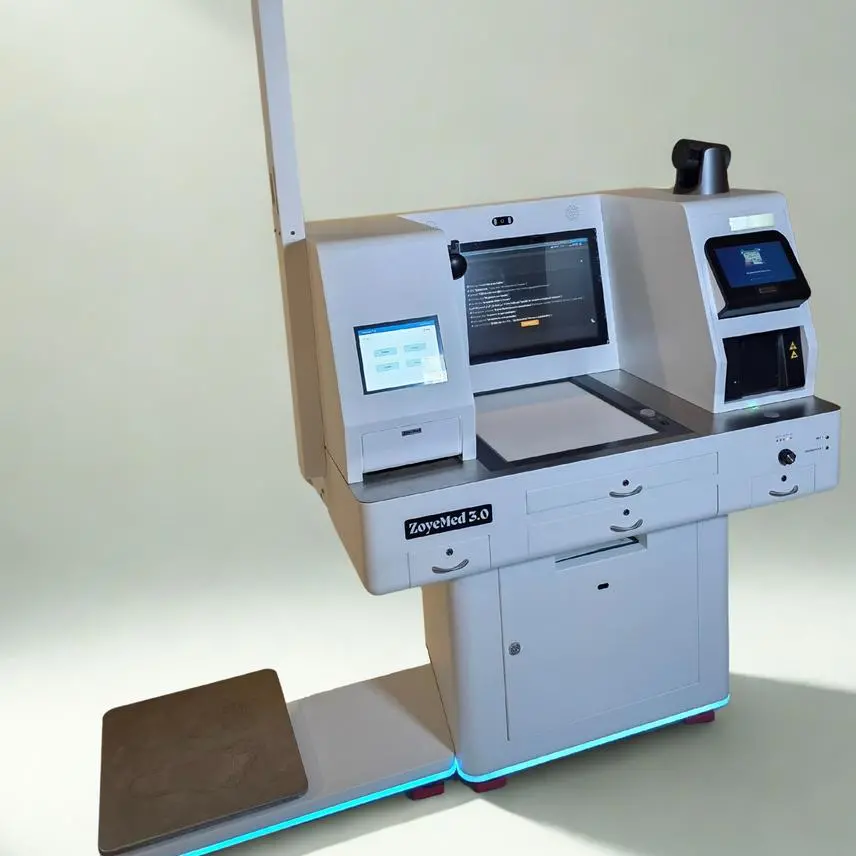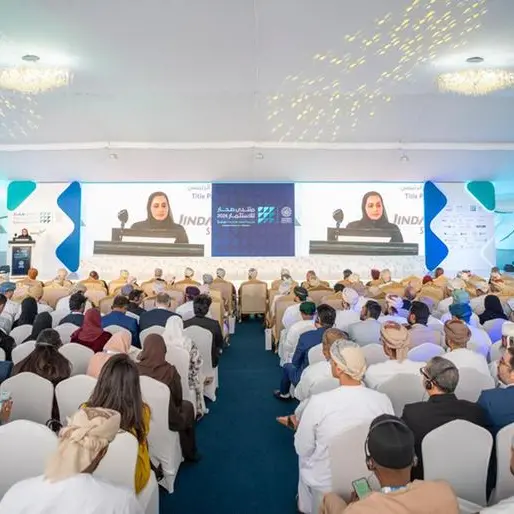- Firms wishing to stay at the forefront of the construction sector must make both technology and sustainability considerations a priority
- Key issues and trends set to be debated at the Construction Technology Forum, 24-25 September
The construction sector is on the cusp of a technological transformation which will drive sustainability considerations to the forefront of decision-making, according to experts who will be debating key challenges associated with construction megatrends at an event this month.
Robots are predicted to replace humans as the sector becomes increasingly automised over the next 30 years, supporting the drive for carbon neutral development while radically improving health and safety on building sites.
Dr Will Cavendish, Global Leader Digital Services, Arup; Aref Boualwan, Senior Manager Digital Transformation & Strategy, CCC; Peter Jones, Technical & Operational Efficiency Director, Skanska; and Sherief Elabd, Director of Industry Strategy, Oracle Construction and Engineering, will be among speakers at the Construction Technology Forum 2019 (24-25 September, Address, Dubai Marina).
According to Arup’s Cavendish, firms wishing to stay at the forefront of the construction sector must make both technology and sustainability considerations a priority or they risk being left behind.
He says: “With the world becoming more polluted and fossil fuel use needing to fall, the transformation to carbon neutral infrastructure, buildings, transportation and grid will become paramount to being able to live and operate in the Middle East.”
Skanska’s Jones shares this vision for the future of the construction sector, adding: “Sites will deliver net-zero carbon through the use of electric vehicles, and plant and machinery powered from renewable resources.”
By 2050, Jones predicts construction sites will look more like assembly plants dominated by robots. He says: “There will be very little build completed on site, except for foundations and earthworks. It will be more like an outside factory, with various sub-assembled components being delivered to site to be assembled by robots or automated vehicles. Ninety percent will be manufactured off site and only brought to site for final assembly.”
CCC’s Boualwan also foresees connected systems and robots permeating future construction sites, creating a major shift in the required workforce skills. He believes a big advantage of this will be improved health and safety: “One of the main reasons why robots are increasingly deployed is their ability to replace workers in dangerous and hazardous construction zones, thus helping to improve safety measures.”
Boualwan envisages significant opportunities in the construction sector for start-ups to help drive digitalisation. He believes this could help eradicate the days of construction delays and spiralling budgets: “The sector has lagged when it comes to technological advancements. Partnering with construction technology start-ups could help put an end to the expansion of construction schedules, and the continuous increase in labour and material costs. I believe the GCC construction scene is on the cusp of a new, ever-evolving era of engaging construction technology start-ups.”
Middle East construction firms need to respond to advances in the sector in order to maintain their competitive advantage, and Arup’s Cavendish recommends they do this by prioritising considerations such as: sourcing sustainable materials; integrating with the United Nations Sustainable Development Goals; considering the “circular economy” to understand what happens at the end of a building’s lifecycle; and integrating smart technologies into buildings from design and through the lifecycle to deliver carbon neutral operations.
Oracle’s Elabd also endorses the need for prompt action in order to keep up with the rapid pace of change associated with tools such as artificial intelligence (AI), robotics, the Internet of Things (IoT), Building Information Modelling (BIM) and drones.
He adds: “Companies need to be taking technology trends seriously now by investing their resources in quality research and development, and most importantly by focusing on process re-engineering and integration within their business culture and markets. Without clear process which supports collaboration and adoption, there is no pathway to successful digital transformation.”
“AI is the big game changer in construction as everything is now revolved around improving productivity, especially labour, in a market that is more competitive than ever.”
“Sustainability will become inherited and integral to any new construction, with constant improvements in performance driven by AI and automation, as well as the use of sustainable materials which promote less energy and water consumption.”
The Construction Technology Forum 2019 will take place on 24-25 September, 2019 at the Address Hotel, Dubai Marina. With governments in the region laying the foundations for data-driven economies, the event is designed to provide insights into how adopting technology can reduce operational costs, boost productivity and enhance overall quality across all elements of the industry supply-chain. For more information and tickets, visit www.constructiontechnologyforum.com.
The Construction Technology Forum is organised by Ventures Connect, a partnership between b2b Connect and Ventures Middle East; two businesses committed to empowering companies across the Middle East and Africa Region while enabling critical connections with key stakeholders and decision makers across various industries. b2b Connect designs, manages and produces content and events for a range of industry-leading clients in the Middle East, North Africa and Turkey. For more information, visit: www.b2bconnectgcc.com. Ventures Middle East is an international management consulting company providing strategic business advisory services across the GCC and the wider MENA region. For more information, visit: www.ventures-me.com.
-Ends-
For more press information or to request media interviews, please contact Tracey Thompson on: 055 378 2297 or email: tthompson@b2bconnectuae.com / Thompson.tracey04@gmail.com
Key sponsors supporting the event provide their expert predictions regarding how megatrends will impact the construction industry in 2050 and how they will they change the face of the industry, particularly in the Middle East:
Gaby Rhayem, Regional Director Middle East and Africa, Doosan Bobcat EMEA
Q) What are your predictions for how megatrends will impact the construction industry in 2050?
Bobcat is leading the way in the industry for some of these megatrends already. All of the following will set the base for jobsite automation: Electrification, machines connectedness, remotely controlled machines, machine autonomy.
Q) How will they change the face of the industry, particularly in the Middle East?
The penetration of electric-powered machines will expand but at slower pace than in the EU for example, but is inevitable for managing the future pollution and noise levels requirements. We’ll need fewer construction workers and more operational engineers and developers writing code to optimize the workflow of autonomous jobsite. For jobs that remain physically on the jobsite, the safety on the jobsite will dramatically improve. The efficiency of the construction process will increase significantly. There will be better overall control for the fleet of machines from one post with one person, and preventing shut downs in advance and real physical status of each working machines.
Hans Vermeulen, Co-founder & CEO Aectual
Q) What are your predictions for how megatrends will impact the construction industry in 2050?
The building industry will be 90% prefab, driven by additive technology and fully automated construction processes that provide instant, bespoke, mass-customised products, perfectly tailored to the client whilst reducing waste, costs and labour.
Q) How will they change the face of the industry, particularly in the Middle East?
Focusing on digital production techniques will extensively increase production capacity and transform its economy with the potential to becoming the largest additive manufacturing capacity in the world.
Suhail Arfath, Industry Manager, Autodesk
Q) What are your predictions for how megatrends will impact the construction industry in 2050?
By 2050 almost 70% of the world’s population will live in cities—that’s about 7 billion people. The shift to more urban living means cities will need more housing and infrastructure. That need presents both an opportunity and a challenge for architecture, engineering, and construction (AEC) professionals. They get to design, plan and build more, but they have to do it on a planet with already stressed resources. Industry professionals must continue to rethink how they design and build, now, through 2050 and beyond. It will take a concerted effort that includes smart city planning, advanced technology and a commitment to do things sustainably to accommodate our growing, increasingly urban population while preserving precious resources.
Q) How will they change the face of the industry, particularly in the Middle East?
When it comes to designing infrastructure, one thing is for sure: Big Data collected through the IoT will play a key role in growing the megacities of 2050.
Michael Brown, Work Winning and Marketing Lead, Joule Group
Q) What are your predictions for how megatrends will impact the construction industry in 2050?
Given the current rate of change in technology and the likelihood that this will increase year on year it is very difficult to predict where the industry will be in 2050. However, I believe we will see the common use of virtual reality and augmented reality across the industry. AI and machine learning will be commonplace and will drive automation across the industry from the way we
design buildings to the way that they are constructed.
Q) How will they change the face of the industry, particularly in the Middle East?
The use of these technologies will see the increase in “full-stack” vertically integrated providers, i.e. companies that provide end-to-end construction services and are in full control of everything from raw materials to building occupation.
Dr Mousalam Alabdulrazzak (PhD), Managing Director, Concerted Solutions
Q) What are your predictions for how megatrends will impact the construction industry in 2050?
Megatrends will change the construction industry landscape as digital technologies will be the driver for this change resulting in a full-scale digitalisation of the industry. Megatrends such as growing urbanisation and material scarcity will need innovative solutions that will only be addressed with an immediate adoption of digital technologies that provide efficient solutions for realising savings in time, material and eventually cost.
Q) How will they change the face of the industry, particularly in the Middle East?
Increasing the real estate asset value and efficiency throughout the entire life of the asset will force the construction industry to fully adopt digital technologies. The Middle East and in particular the UAE and Saudi Arabia are leading the digital transformation in the region.
- A full event agenda can be found at constructiontechnologyforum.com
- Key sponsors of the event include: Oracle Construction and Engineering, Roken, Concerted Solutions, Xpedeon / Algorithm Software, Knauf, Redington, Autodesk, Everest Fibre Cement Boards, Aska Power Generation, Dubox, Bobcat, Wakecap, Ottogee, Aectual, Joule Group
- Media partners: RICS, CIOB – The Chartered Institute of Building, MEFMA – Middle East Facility Management Association, Ventures Onsite, French Business Council
Disclaimer: The contents of this press release was provided from an external third party provider. This website is not responsible for, and does not control, such external content. This content is provided on an “as is” and “as available” basis and has not been edited in any way. Neither this website nor our affiliates guarantee the accuracy of or endorse the views or opinions expressed in this press release.
The press release is provided for informational purposes only. The content does not provide tax, legal or investment advice or opinion regarding the suitability, value or profitability of any particular security, portfolio or investment strategy. Neither this website nor our affiliates shall be liable for any errors or inaccuracies in the content, or for any actions taken by you in reliance thereon. You expressly agree that your use of the information within this article is at your sole risk.
To the fullest extent permitted by applicable law, this website, its parent company, its subsidiaries, its affiliates and the respective shareholders, directors, officers, employees, agents, advertisers, content providers and licensors will not be liable (jointly or severally) to you for any direct, indirect, consequential, special, incidental, punitive or exemplary damages, including without limitation, lost profits, lost savings and lost revenues, whether in negligence, tort, contract or any other theory of liability, even if the parties have been advised of the possibility or could have foreseen any such damages.



















